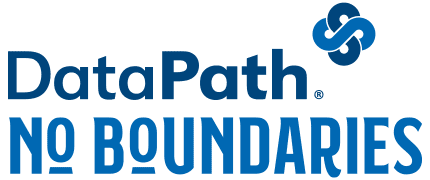Employers are increasingly acknowledging the vital role of supporting employee mental health. One notable trend is a dramatic increase in the availability of employer-sponsored mental health stipends, marking a fundamental shift in how organizations approach workplace wellness.
Professional benefit administrators, such as TPAs and PEOs, are well-positioned to support these mental health initiatives with selected CDH and well-being accounts. Learn more about mental health support and what roles workplace benefits accounts can play.
The Growth of Mental Health Stipends
Mental health stipends have become a flexible addition to employee benefits packages, offering dedicated funds for mental health services. According to the 2024 Employee Benefits Survey by the Society for Human Resource Management (SHRM), 73% of employers now provide some form of mental health stipend, compared to just 38% in 2019.
Typically ranging from $500 to $2,000 annually per employee, these stipends can be utilized for mental health services, including:
- Therapy and counseling sessions
- Mental wellness apps and digital tools
- Meditation classes and mindfulness programs
- Mental health coaching
- Self-care activities and stress management resources
Transforming Approaches to Workplace Wellness
Mental health stipends are fundamentally altering how employers design wellness and benefit programs. Instead of one-size-fits-all solutions, these stipends empower employees to choose the mental health support that best meets their individual needs.
Research from McKinsey’s Health Institute shows that personalized wellness approaches produce significantly better outcomes than traditional, standardized programs. By offering stipends, employers recognize the diverse mental health needs of their workforce while eliminating potential barriers to care.
Measurable Business Benefits
In addition to enhancing employee well-being, mental health stipends are generating measurable business advantages. A 2023 study by Deloitte found that companies investing in mental health support receive an average return of $4 for every $1 spent, primarily through decreased absenteeism and increased productivity. These benefits can also boost recruitment and retention efforts.
Reduced Absenteeism and Presenteeism
The American Psychiatric Association Foundation reports that mental health conditions are a leading cause of workplace absenteeism, with depression alone accounting for over 200 million lost workdays annually in the U.S. Companies that have implemented mental health stipends have reported absenteeism reductions of up to 30%, according to SHRM‘s workplace wellness effectiveness data.
Moreover, these programs also tackle presenteeism – when employees are present but not fully engaged due to mental health issues. The World Health Organization estimates that presenteeism costs employers two to three times more than absenteeism.
Enhanced Recruitment and Retention
In today’s competitive job market, mental health benefits are becoming a key differentiator. The 2024 MetLife Employee Benefit Trends Study found that 86% of employees consider mental health benefits “extremely” or “very” important when assessing job opportunities.
Especially among younger workers, mental health support is a top consideration in employer selection. According to Gallup’s State of the Global Workplace report, 61% of Millennials and 64% of Gen Z workers would consider changing jobs for better mental health benefits.
How TPAs and PEOs Can Assist Employer Groups
TPAs and PEOs excel in the field of workplace benefits. As strategic partners with their employer groups, they are perfectly positioned to assist with enhancing a benefits package that achieves the employer’s goals and drives successful adoption within the workforce.
Lifestyle Spending Accounts (LSAs) or Health Reimbursement Arrangements (HRAs) can support mental health initiatives. These accounts offer tremendous flexibility for IRS- and employer-approved expenses and a streamlined reimbursement process. While both accounts are employer-funded, an LSA is considered employee income, and the employee is responsible for paying any associated taxes; meanwhile, HRAs do not count as taxable income for employees, and the employer receives the tax advantage.
Benefits professionals can help with education by developing employee-focused education materials, such as emails, newsletters, one-pagers, and more. They are also adept at setting up accounts, claims review processes, and plan reporting for a satisfactory employer experience.
With the right platform, TPAs and PEOs should be able to offer a well-rounded, all-in-one benefits package that includes LSAs or HRAs, along with FSA, HSA, and COBRA administration.
Implementation Considerations for Mental Health Stipends
For organizations contemplating mental health stipends, several factors should be considered:
- Accessibility: Ensure the stipend program is straightforward and user-friendly, with minimal administrative hurdles.
- Privacy: Maintain employee confidentiality by designing programs that do not require disclosure of specific mental health issues.
- Communication: Actively promote the benefit and work to reduce stigma around using mental health resources.
- Measurement: Monitor program usage and outcomes while respecting privacy to evaluate effectiveness and identify areas for improvement.
- Complementary Support: Pair financial stipends with a broader mental health strategy, including manager training and workplace culture initiatives.
Looking Ahead
As mental health stipends continue to gain momentum, benefits experts anticipate further developments in this area. The 2024 Willis Towers Watson Health Care Trends Survey indicates that mental health stipends are likely to become more prevalent and valuable in the next three years, with the average annual stipend expected to rise to approximately $1,500 per employee by 2026.
The widespread adoption of mental health stipends, recognizing mental health as essential to employee well-being and organizational success, marks a significant evolution in workplace benefits. As these programs continue to yield positive outcomes for both employees and employers, they are poised to become a standard part of comprehensive benefits packages, rather than just a differentiator.
TPAs and PEOs who are looking to add additional services should explore how an LSA or HRA can support mental health programs. Administrative solutions that offer FSA and HSA functionality should be able to seamlessly add LSAs or HRAs into the mix and enable you to serve your clients with a comprehensive benefits package.
Looking to add HRA or LSA administration to your book of business? Find out how DataPath’s cloud-based platform simplifies HRA and LSA management, along with other CDH and COBRA services.


